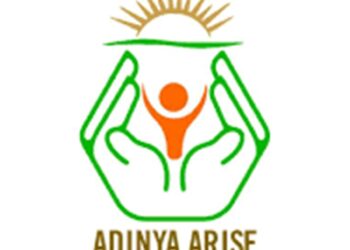


Foundation seeks urgent reforms to support Nigerian girls
The Adinya Arise Foundation (AAF) on Friday called for immediate action to address the challenges faced by Nigerian girls in education, menstrual health, and protection from gender-based violence.
Ms. Mabel Ade, Executive Director of AAF, made the appeal in a statement to commemorate the 2024 International Day of the Girl Child in Abuja.
According to Ade, one of the biggest obstacles is poor access to education, saying Nigeria has one of the highest rates of out-of-school children globally, with girls bearing the brunt of this crisis.
She pointed out that insecurity, poverty, and early marriage often prevent girls from accessing education.
“Insecurity and economic hardships in northern Nigeria, aggravated by insurgency and communal violence, often lead families to prioritise boys’ education over girls.
“Early marriage is often seen as a solution to relieve financial burdens, depriving girls of the chance to gain an education.
“Nigeria has one of the highest rates of out-of-school children globally, with girls most affected”.
Ade stressed the need for policies that promote free, compulsory education for girls, particularly in conflict areas.
Ade noted that menstrual health is a neglected issue, with millions of Nigerian girls lacking access to sanitary products and proper hygiene facilities, leading to absenteeism.
She emphasised the need for policies ensuring the availability of sanitary products in schools and improved hygiene infrastructure.
“We must address this to ensure girls aren’t left behind in their education due to natural biological processes,” she stressed.
Ade warned of the increasing threat to Nigerian girls, particularly in conflict-affected areas.
“Conflict and displacement make girls easy targets for traffickers and sexual predators, and there is a rise in ritual killings and organ harvesting.
“Victims of rape and early pregnancies are often forced to drop out of school, exacerbating the cycle of poverty.
“Stronger laws and enforcement are needed to protect girls and hold perpetrators accountable,” Ade urged.
Ade proposed a holistic approach, urging the government to strengthen policies for free and compulsory education for all girls, especially in conflict-affected areas.
She emphasised educating parents on the long-term benefits of girls’ education to break the cycle of poverty.
Ade called for policies providing sanitary products and hygiene facilities in schools, and integrating menstrual health education into curricula to break the stigma.
She stressed the need for stricter law enforcement against sexual violence, trafficking, and ritual killings, recommending specialised police units to handle such cases.
She also advocated for safe spaces offering vocational training and mentoring to build girls’ confidence and resilience.
Ade recommended economic programmes for rural families to increase incomes and reduce the need for early marriages.
Ade emphasised greater access to sexual and reproductive health services, especially in conflict areas, to reduce early pregnancies and protect girls.
She noted the need for leadership training through mentorship and scholarships to prepare girls for roles in governance, entrepreneurship, and leadership.
The executive director also called on everyone to work together to remove barriers and build a more equitable Nigeria, “The future of the Nigerian girl child depends on sustained efforts”.



